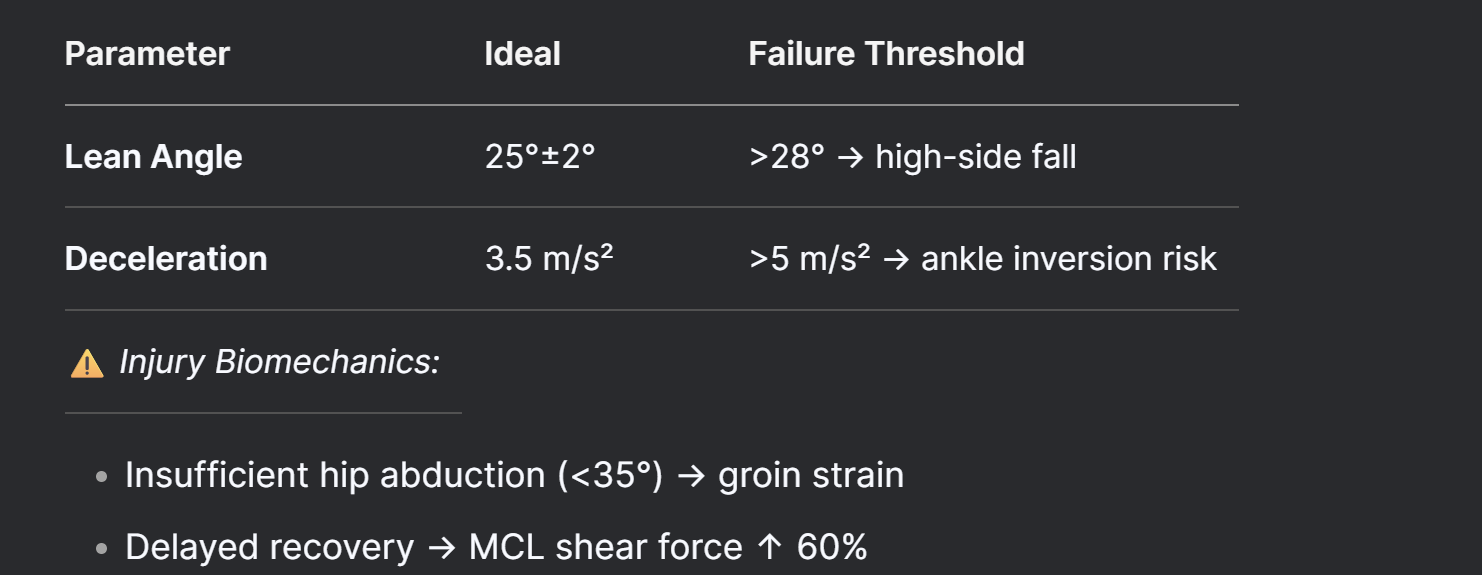Power Slide
Power Slide (Class D)
Controlled deceleration technique using lateral friction – develops precise weight distribution and edge control. The gateway to advanced sliding maneuvers.
Classification & Prerequisites

Non-Negotiable Prerequisites
1. Basic 180° Slide (E) Mastery:
- 5/5 recoveries to Eagle within 0.5s
- Hip deviation <5° during rotation
2. Hip Mobility Certification:
- Frog stretch: Knees 10cm from the floor
- Lateral lunge depth: Thigh parallel to ground
Technical Execution
1. Approach & Setup (3-5m)
- Speed: 12-15 km/h (optimal momentum)
- Stance: 70% weight on the sliding foot, lead shoulder opened 45°
2. Slide Initiation
- Edge Engagement: Aggressive inside edge → wheels break traction
- Body Position: 25° forward lean, sliding leg extended
Kinetic Rationale: Gluteus maximus eccentric loading → dissipates kinetic energy
3. Friction Management
- Pressure Modulation: Progressive weight transfer to sliding foot (70% → 90%)
- Arm Position: "T-Rex arms" (elbows bent 90°) for balance
Kinetic Rationale: Hamstring-quad co-contraction stabilizes the knee joint
4. Recovery
- Exit: Rotate shoulders to neutral → snap to Eagle stance
- Critical Window: <0.4s from full stop to stable position
Gear Impact

Physics & Safety

Mastery Metrics

Coaching Progressions
1. Static Pressure Drills:
- Wall-supported slides → develop edge confidence
2. Speed Ladder:
- 8 km/h → 10 km/h → 12 km/h (focus on exit stability)
3. Variable Surfaces:
- Practice on μ=0.9 → μ=1.1 → μ=0.8 surfaces
Competition Utility (WSSF)

Pro Tip
> "Press your sliding foot like a gas pedal" – progressive pressure application prevents wheel chatter. Elite skaters achieve 3.0m slides by modulating pressure at 50%/75%/90% points.
Safety Protocol
- Mandatory Gear: Slide gloves + knee pads (palm/wrist impact risk)
- Surface Ban: Avoid μ<0.75 surfaces until Class C
- Recovery Priority: Drill exits before extending slide distance